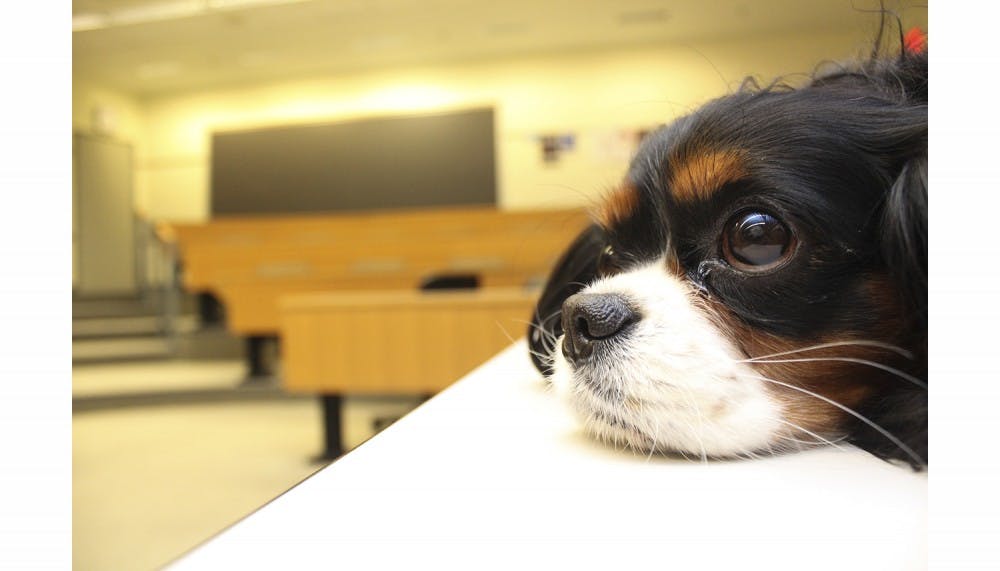Penn’s various college houses operate with a common policy: no pets, except for service animals and the occasional fish. Penn Residential Services states that animals in dorms “pose potential health problems,” “cause destruction of University property,” and can disrupt other residents. The penalties for violation of these rules include steep fines and possible loss of University housing.
But students who live off campus, and those clever enough to bypass house rules, generally characterize their experiences with pets as fulfilling.
College junior Becca Lambright described her decision to foster a dog from Philadelphia Animal Welfare Society (PAWS) as “impulsive.” Scrolling the organization’s website last spring, she noticed a photo of a dog labelled “in urgent need.”
“I was saying I wished I could adopt him and save him,” Becca said. “I literally filled out their application to foster right there and then” on the PAWS website.
Within a week, Becca brought the tiny dog home to her off–campus apartment—her landlord allows small animals. Since she fostered the dog during finals and reading days, “he would just sit in my lap while I studied at home,” Becca said. After about two months, the dog was adopted to a permanent home.
While interning at the Working Dog Center at Penn Vet this summer, College junior Abby Anmuth served as a “back-up foster.”
“This basically means they can call me when one of the regular foster parents can’t take care of their dog for x amount of time,” she said.
Abby fostered “working dogs in training” on the weekends. These dogs attend school Monday through Friday to train “in the areas of Urban Search and Rescue, ovarian cancer detection, narcotics detection, police work, diabetes alert, and more,” according to Penn Vet’s website.
Abby rents from Apartments at Penn, which is pet-friendly off-campus housing.
Having pets while living in on-campus housing can be a bit more complicated. Maggie* housed two rabbits under her bed while living in Kings Court last year.
“On Super Bowl Sunday we saw one of our friends on the floor carry [the rabbits] to her room, and we just kind of followed her so we could meet them,” Maggie said.
The rabbits belonged to a friend of a friend who needed someone to temporarily house them. Maggie and her roommate volunteered. “We really liked them so we decided to just go for it,” she said.
Caring for the rabbits—which the roommates named Yuki and Saura—was a daily chore, but one that was “pretty easy.” Maggie and her roommate had to feed the rabbits, clean their cage, clip their nails, and vacuum the carpet.
The house rules proved to be a weak deterrent. Maggie acknowledged the risk of keeping the rabbits but wasn’t worried. “A couple of other people had pets on our floor,” she remembered. “We thought we would probably be okay.”
The rabbits “[weren’t] a huge secret,” Maggie said. “A lot of people on our floor… knew we had them and sometimes our friends would come up to meet them as well.”
Maggie’s RA never found out, and she plans to house the rabbits again this year, still living on campus. Fingers crossed.
*Name has been changed.

